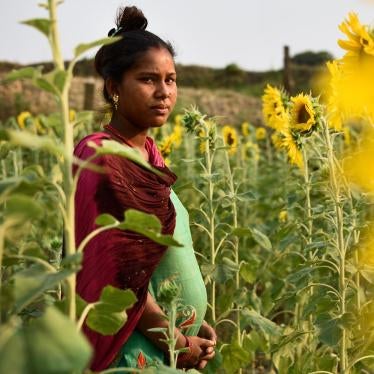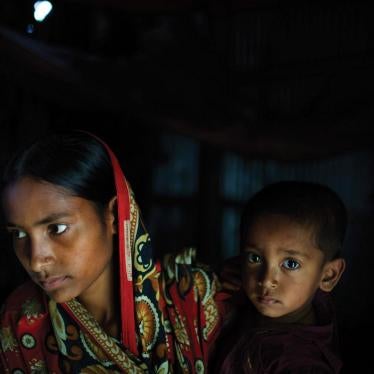Today is the second United Nations International Day of the Girl Child, designed to promote girls’ rights. This year’s theme is “Innovating for Girls’ Education,” - addressing new technologies, mobilising communities, and engaging girls themselves. It’s a moment for us to reflect on the huge challenges girls still face today when trying to access education and, more broadly, to realise their human rights.
Around one in seven girls marries before the age of 15 - some even marry as young as eight. . Child marriage profoundly impacts girls’ physical and mental well-being: it risks damaging their health and disproportionately exposes them to domestic and sexual violence. And child marriage almost inevitably puts an end to education for millions of girls.
Research by Human Rights Watch in Yemen, South Sudan, Afghanistan and elsewhere shows that as well as quantifiable effects such as illiteracy and economic dependency, limited access to education as a result of child marriage carries intangible consequences for girls into adulthood. Interviews we conducted show that leaving school early limits girls’ opportunities to develop their own independent identities and feelings of self-worth. As Fathiya L., married in Yemen at the age of 12, said: “I’m illiterate. They didn’t teach us anything. If they did, at least I would have benefitted from something.” Girls and women with limited education are more vulnerable to persistent poverty when their spouses die, or abandon or divorce them.
Concerned governments should press for a minimum age of marriage of 18, consistent with international human rights standards, to be established in those countries that have so far failed to do so. The United Kingdom should also provide development support for programmes that seek to address barriers to girls’ education. These programmes may cover school-related costs or provide safe transportation for girls to schools in rural communities; they may provide health services, such as reproductive healthcare for all girls and women, by ensuring adequate resources and personnel are available; or they may support shelters and women’s groups to ensure that girls who need to escape a marriage have a way out.
Girls also work disproportionately as child domestic labourers. Today, more than 17 million children serve as domestic workers, comprising at least 30 per cent of the world's domestic labour force. The International Labour Organization estimates that 83% of domestic workers are women and girls. Girls often work more than 12 hours a day, seven days a week: cooking, cleaning, washing clothes, and caring for other people’s children for little, if any, pay. Their total isolation in private homes leaves them at risk of violence, including sexual abuse. In Morocco, none of the child domestic workers Human Rights Watch interviewed were allowed to attend school by their employers. Karima R., aged 10, said: “My employer told my parents I would be allowed to go to school, but I never was able to go. The woman never told me why.” New figures released by the International Labour Organization indicate that while overall, child labour rates are going down, the number of children in domestic labour increased by more than one million from 2008 to 2012.
The UK government has pledged to put girls and women at the heart of its development assistance and foreign policy, including prioritising girls’ education and preventing violence against women. Yet the UK has still failed to sign the International Labour Organization’s 2011 Domestic Workers Convention, which protects children and adults alike. It requires governments to take steps to keep young girls out of domestic work, and to ensure that those old enough to work legally enjoy the same rights as other workers. In failing to ratify the convention, the UK is also failing to ensure that domestic work does not deprive children of education and other rights.
The International Day of the Girl Child is a chance to push for greater action on these issues. Ending child marriage and protecting girls from domestic labour would give them the chance to have a childhood. Now wouldn’t that be innovative?








